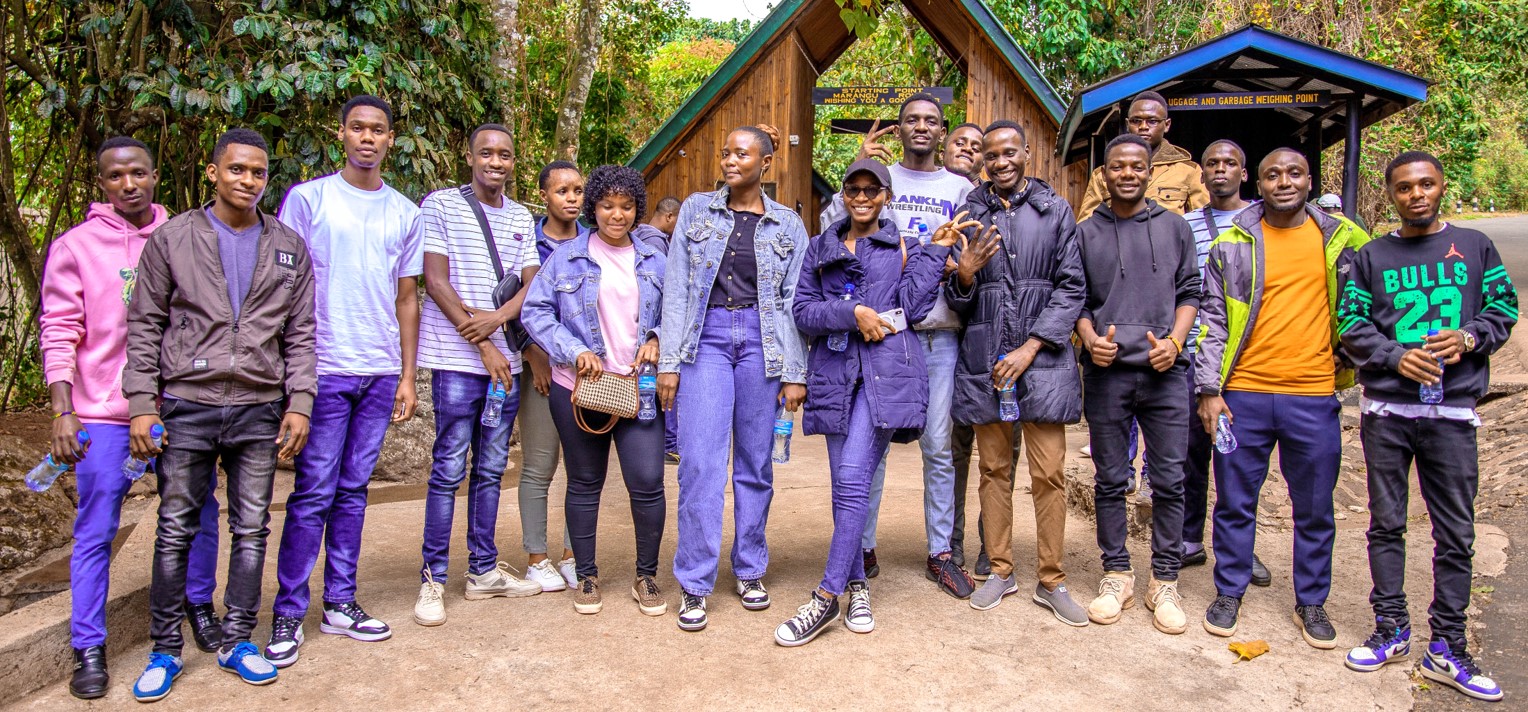Kilimanjaro Mountain deforestation is a pressing and multifaceted issue, and thus it made a great umbrella challenge for the MCL 2023 campaign in Moshi Co-operative University. Read below about field trips to the Kilimanjaro Mountain national park, stakehodlers' involvement, and the solutions students came up with.
Story 1: Site visit to Kilimanjaro
Embarking on an expedition to Mount Kilimanjaro became important for the MCL teams as they began the pressing issue of addressing the degradation around Mount Kilimanjaro. The teams visited the challenge area to gain a better understanding of the challenge which was important for developing the actionable problems and coming up with solutions ideas. The journey was a mixture of excitement as well as education which united both students and mentors. Along the way, both teams enjoyed the green surroundings of the areas around the mountain, engaging in a dynamic exchange of ideas that gave more insight into the whole umbrella challenge. Conversations were active and educational which helped the student to dipper understand the challenge.
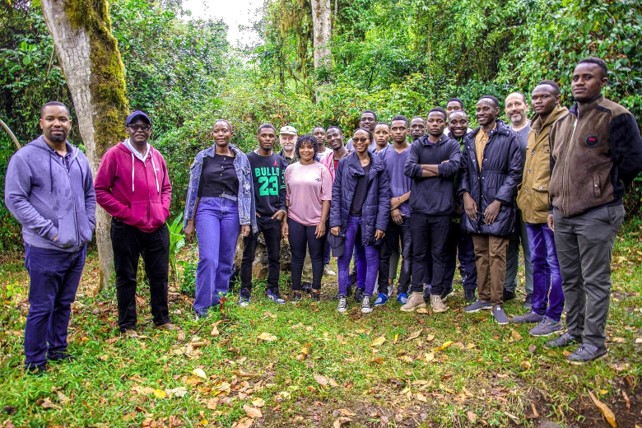
MCL students, staff and mentors from MoCU in the forests of Kilimanjaro National Park.
The expedition wasn’t solely about questions and answers but also was an adventure for both teams. Photos were taken capturing not just visuals for educational documentation but also fun pictures for memories. The trip was a catalyst for transformation because it filled the teams with profound information which helped the students in developing their challenges and coming up with actionable solutions.
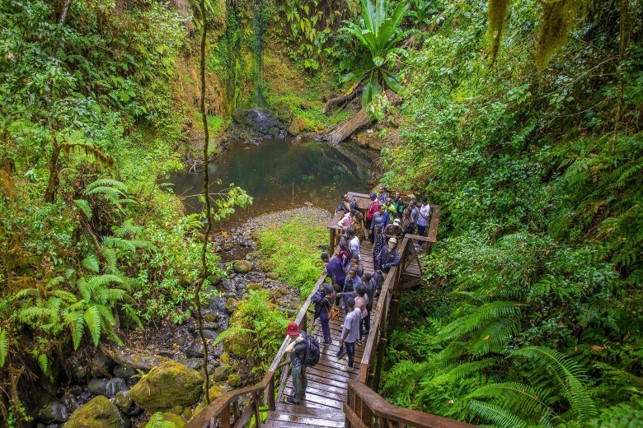
The National park rainforests are lush and green, with ponds and small waerfalls here and there giving living spaces for a rich ecosystem.
Story 2: Stakeholders' day
The 2023 Challenge at MoCU was centered on Kilimanjaro Mountain, Africa's highest free-standing peak located in northern Tanzania near the Tanzania-Kenya border. Kilimanjaro significantly contributes to Tanzania's economy and draws tourists for its height, unique structure, and snowy peaks. However, the mountain faces a critical issue: the melting of glaciers which is expected to vanish by 2025-2035 due to forest loss and degradation. This poses a serious threat to water sources for both local communities and the wildlife. Recognizing the urgency, the MoCU team actively engaged in addressing Kilimanjaro's degradation, and in the process the teams decided to involve the most relevant stakeholders. The teams were able to identify stakeholders with a major interest in the mountain and one of the stakeholders involved was Dr. Gabriel Mayengo from the College of African Wildlife Management (MWEKA), who was among the key stakeholders. The stakeholders were able to offer insights into the mountain's characteristics, challenges, and the role of tour guides. His input greatly enhanced the students' understanding, helping the students in coming up with actionable problems and develop solutions.
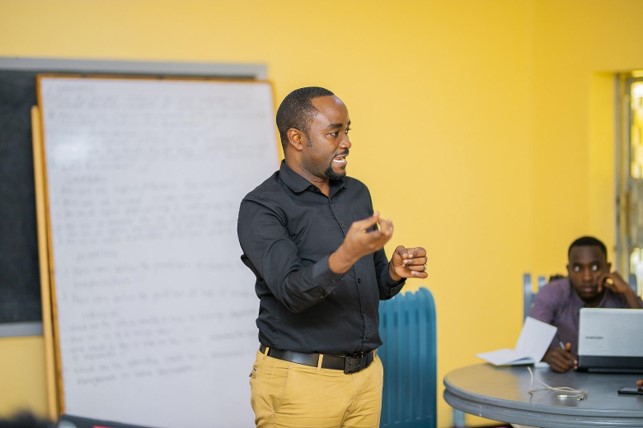
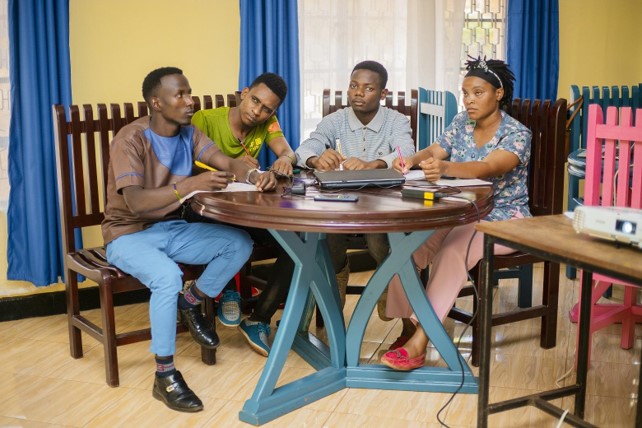
Speaks and presentations during the Stakeholders' day were important for the MCL students to paint a comprehensive picture of the deforestation challenges in Kilimanjaro Mountain.
Story 3: Actionable problem formulation and solution ideas generation
During MCL, students were subjected to a big umbrella challenge from which they were required to formulate actionable problems. After having actionable problems, they were expected to generate solution ideas. For this to be achieved, students worked in their teams. Mentors were always there to lender needed support to students.
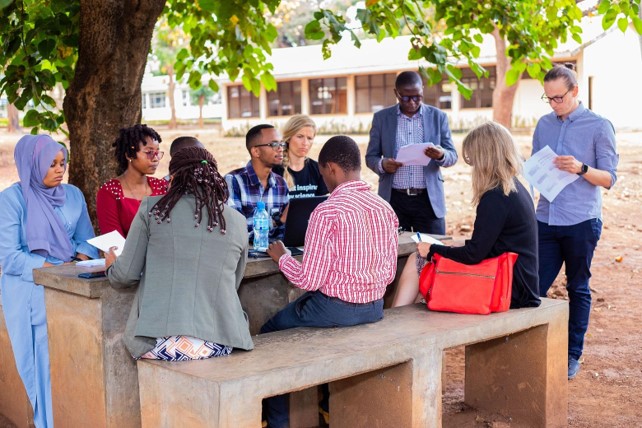
MCL student group discussing with MoCU mentors, and visitors from Finland about their Actionable Problem ideas.
Each team identified a specific actionable problem related to the main challenge and developed a solution accordingly. The initial week focused on understanding the overall challenge also defining and validating the actionable problem. Teams engaged with challenge owners and stakeholders, exploring sustainability issues, human-nature systems, and geospatial data to refine the actionable problem. In the second week, the emphasis shifted to generating solution ideas and validating their feasibility through experimentation. Teams physically visited the challenge area to gain deeper insights, propose solution ideas, and conduct data and tool experimentation. Weeks 3-4 were dedicated to refining the solution ideas, and the final week involved demonstrating the solutions and gathering feedback from the public.
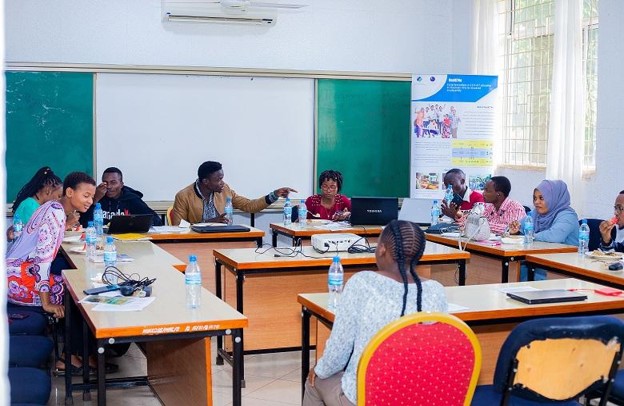
All student groups together sharing ideas in the classroom.
Story 4: Students' solution
During MCL challenge, students came up with different solution ideas for solving their Actionable Problems. One of the actionable problems proposed by the team called Treasure was: “How can we Introduce tree farms for human use so that people cannot conduct illegal activities within the forest reserve”
Their solution idea to answer the actionable problem was: “Establishment and monitoring of tree farms for human use”
With this idea, the students were aiming at sustaining and ensuring that people reduce interference within the forest. The goal was to ensure that activities such as lumbering, beekeeping, settlements are not done within the forest but outside the forest.
Understanding that their solution cannot cover the whole mountain at once, they selected some few areas to be included in their proposed solution. The areas selected were Kirua, Himo and Uchira villages. These areas were selected because of their recorded high level of deforestation. The areas were mapped with a developed model to show how they currently look like and how they will look like after their solutions intervention.
